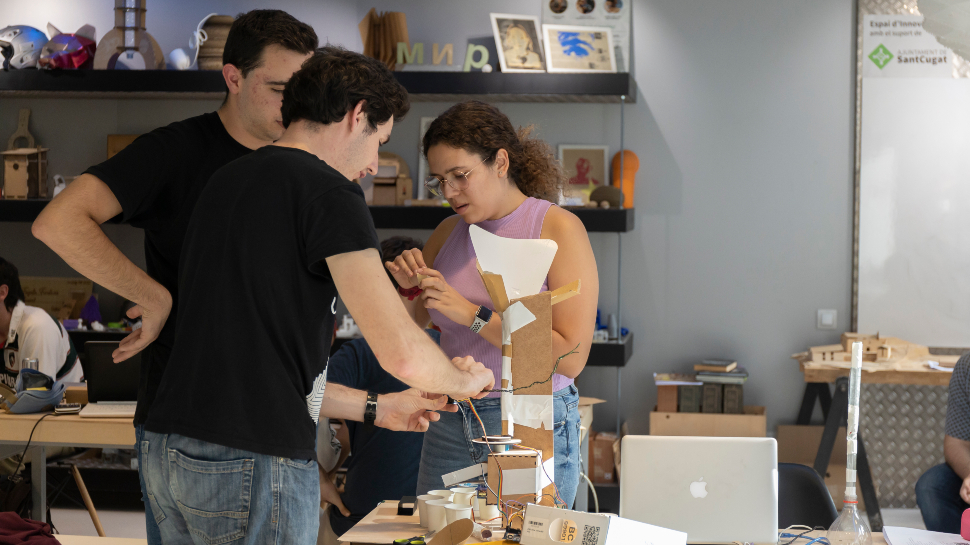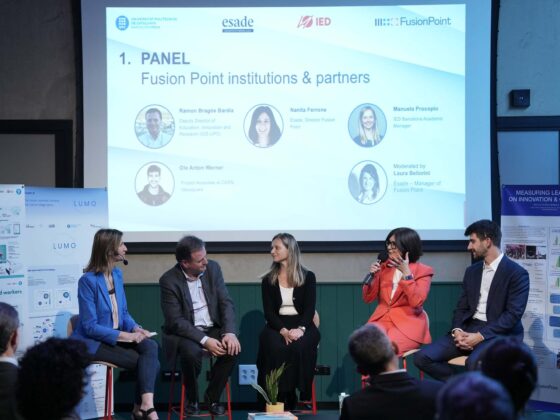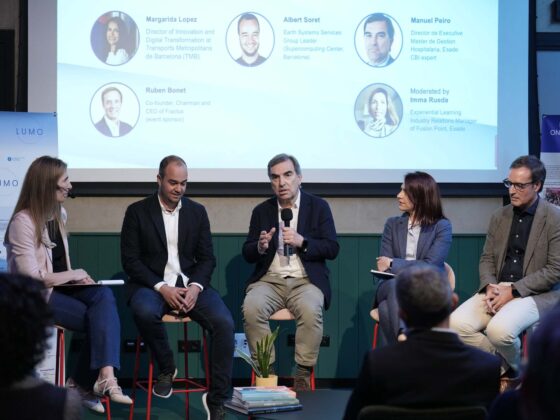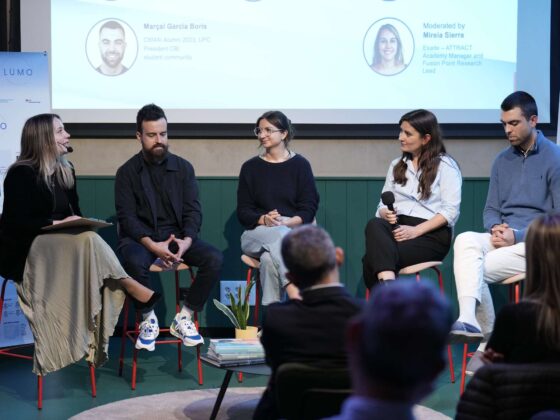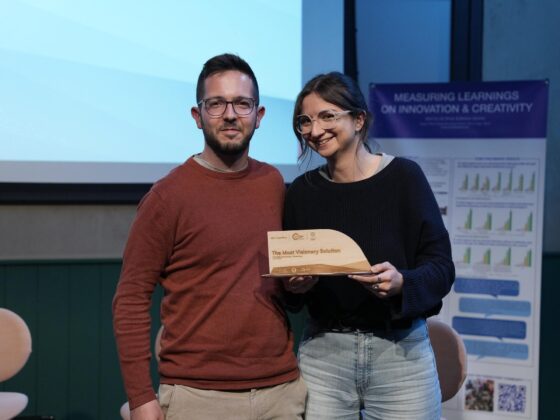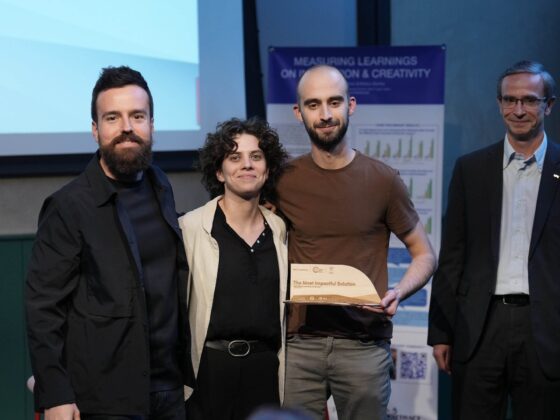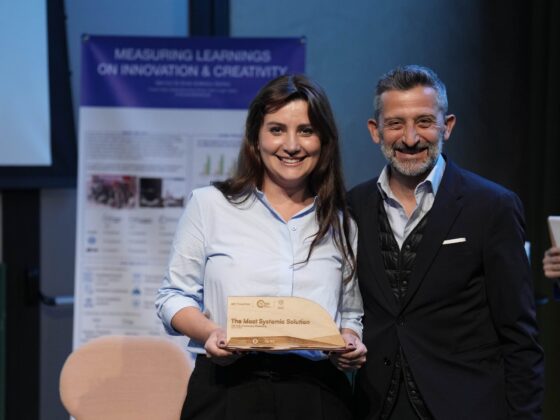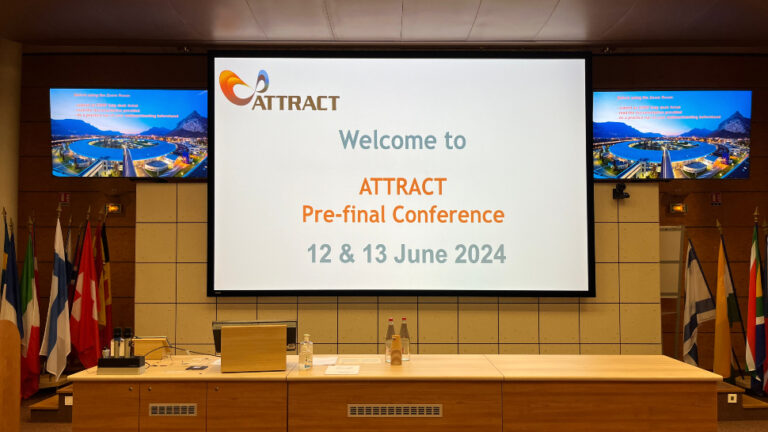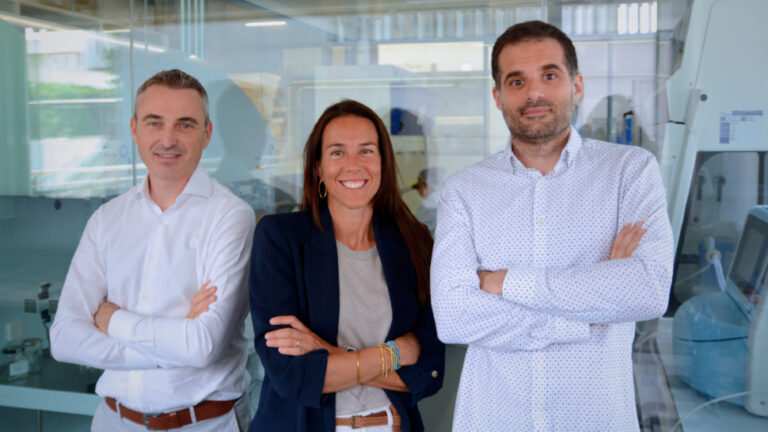The Challenge Based Innovation program by Fusion Point (CBI-FP) is a collaborative initiative that links research, education, and scientific expertise to address real societal challenges aligned with the United Nations Sustainable Development Goals (SDGs) using ATTRACT technologies. This year marks a decade since the initiation of CBI in Barcelona, where the program has engaged over 400 students from 20 different nationalities. To commemorate this significant milestone, the team organized an open event on April 11th at The Social Hub in Barcelona, bringing together students, teachers, and experts from different editions of this program.
The CBI-FP is fundamentally human-centred and draws its methodology from Design Thinking, Challenge-Driven education, and Experiential learning. It is aimed at students from Esade (Full-Time MBA), IED Barcelona (Product Design and Interaction), and UPC (Telecommunications, Electronics and Informatics Engineering) who work in multidisciplinary teams and whose learning is possible thanks to their work side by side with faculty, coaches, researchers, forming a large community of co-learners in the process of addressing a challenge.
During the event, attendees had the opportunity to participate in roundtable discussions led by coordinators, who shared insights into the origins of the CBI, the methodologies utilized, and future expectations. Former participants also shared their learning experiences and showcased the projects they worked on. Additionally, representatives from various organizations and companies involved in innovation, technology, and creativity were present to discuss how students could help them tackle a specific challenge they introduced, and how the interdisciplinary collaboration between students could contribute to addressing pressing healthcare challenges, among others.
Towards the final stretch of the event, three groups of students from different editions were awarded for their projects that stood out in different areas:
- The most impactful solution: Wu Team, Cortex Project (2017)
- The most visionary solution: Alani Team, GreenCubi Project (2019)
- The most systemic solution: Manabe Team, The Asbestos Project (2022)
It should be noted that some former participants had a chance to showcase their prototypes and explain the purpose and which ATTRACT technologies they worked with. Get to know more about these projects:
- A device for diagnosing mesothelioma—lung cancer induced by inhalation of asbestos fibres (Manabeteam. CBI, 2022): conceived for shipbreaking workers in Bangladesh, the solution combines diagnosis based on hyperspectral analysis of pleural fluid, using ATTRACT’s disruptive technology, with an awareness programme among workers. The result is a portable station that analyses samples using AI to obtain a conclusive result.
- A portable system for monitoring cancer evolution (Marie Curie team. CBI, 2022): LUMO is a solution to make cancer treatment monitoring more accessible in rural areas. Using a small, low-cost gamma camera along with a transport service for radiotracers, the team proposes an imaging system to monitor tumour progression using a manually driven probe, similar to an ultrasound imaging system, and to conduct cancer monitoring tests without having to travel to a hospital.
- Tumor DeTech to improve cancer research (Yallah team. CBI4AI, 2023): this system offers laboratories worldwide the ability to track tumour growth in a standardised way. It facilitates data exchange to build a code algorithm for predicting tumour growth, using POSICS-2 and Random Power systems, and processing information among research teams. This tool can replace the need for animal testing in cancer research.
- A comprehensive solution to the mould problem (The Galileis team. CBI 2023): GuardianAir is a proposal to address the widespread problem of mould in UK homes. It brings together two cutting-edge solutions: first, a sensor that detects environmental conditions favourable to mould growth, and second, a handheld device that detects it inside walls and classifies it, providing real-time data to support action and ensure healthier work and home environments.
Explore some snapshots captured during the event here:
Here you can watch a video that summarizes these ten years of the Challenge Based Innovation program:
For more information
Visit the CBI-FP website here.
